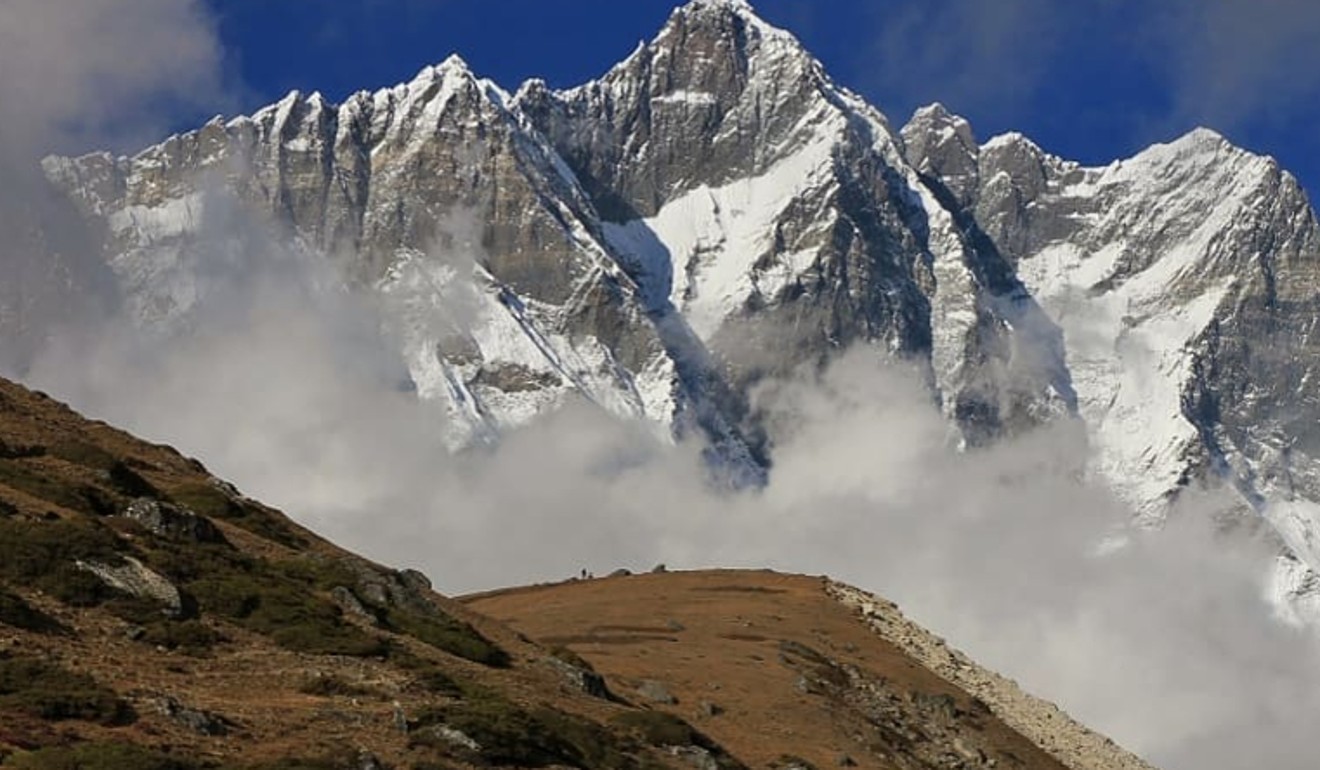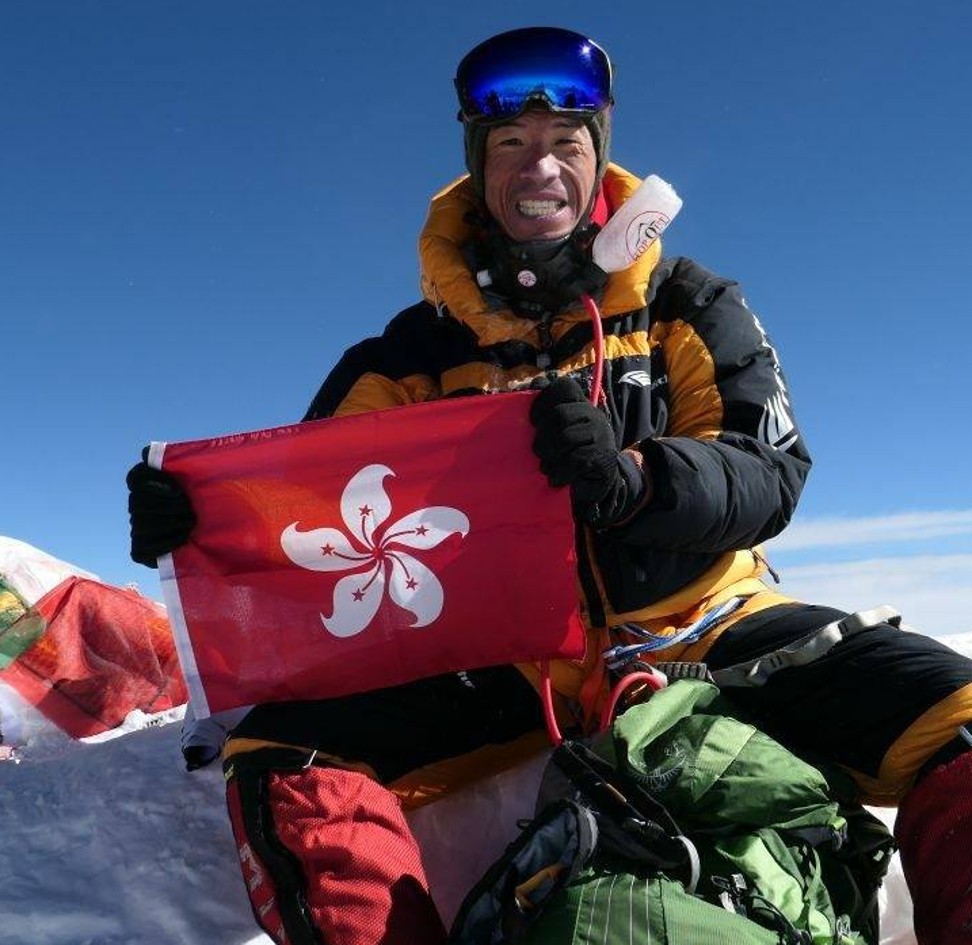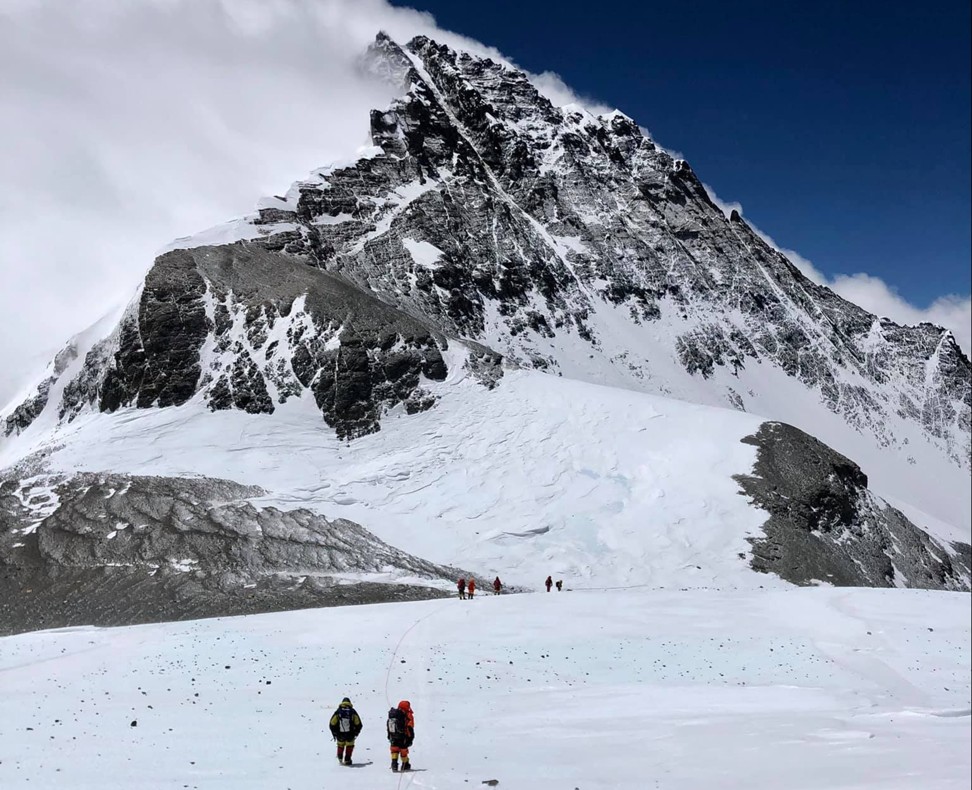
Hong Kong climber urges respect for environment and humility when scaling world’s highest peaks, instead of going for glory
- In light of Everest deaths, Wong Wai-kin, who scaled the nearby Mount Lhotse, warns the ill-equipped and unprepared to think twice before endangering not only their lives, but those of others
At 7.45am on May 21 in Nepal, Wong Wai-kin reaches the peak of Mount Lhotse and breathes a huge sigh of relief.
The feat on the fourth-highest mountain in the world is one he would never forget, not least for surviving a scare on the way up.
Just shy of the 8,516-metre summit earlier, his oxygen bottle failed him. His warm breath got trapped in the filter and became frozen. But he improvised by removing the mask when exhaling and putting it back on when inhaling.
When he is not scaling new heights on the world’s most treacherous peaks, Wong, 47, who is married with a six-year-old son, works as a sports training consultant in Hong Kong.
Other mountains he has climbed include Mount McKinley, or Denali, the highest peak in North America, and Mont Blanc, the highest in the Alps.
As someone with a keen interest in the environment and climate change, Wong, who is among the first from Hong Kong to conquer Mount Lhotse, has also been a volunteer with Greenpeace since 2003.
Last month, news on Mount Everest made global headlines, reminding Wong about his own brush with death on Lhotse. At least 11 climbers died in just 10 days on the world’s highest peak in the thick of the mountaineering season.
Wong is only too familiar with the conditions – he says he saw big crowds gathering at base camps and queuing to reach the top of the world as he set foot on the nearby Mount Lhotse.
Everest deaths: summiteer ‘surprised more people haven’t died’
“The ‘traffic jam’ meant it took most up to 10 hours to complete their final stretch to the summit, which left them exposed to the unforgivingly cold weather for a long time,” he says, adding that he has seen frozen corpses carried down the mountain. Some lucky enough to survive the ordeal were in such bad shape after their return that they had to amputate limbs.

In light of this, Wong warns that the extreme sport is not for the ill-equipped and unprepared.
“I saw many beginners this year, some were wearing side-strap backpacks and funny hats, and some literally had to be pulled by Sherpa guides. These amateurs really put not just their lives, but other people’s lives at risk too.”
I saw many beginners this year, some were wearing side-strap backpacks and funny hats, and some literally had to be pulled by Sherpa guides
As for his own conquest of Lhotse, he took a gamble by planning his final climb to the top on May 21, to avoid a jam expected on May 22 and 23, the only two suitable climbing days of the season.
He says ideal conditions would be when there are no clouds, wind or snowfall.
“There are usually 10 to 11 suitable days, this year there were only two, which may have contributed to the high death toll,” he adds.
While the Everest deaths have thrown the intention of thrill-seeking, moneyed climbers into question, Wong says his drive comes not from the need to seek fame and glory, but for his love of the environment and concern over climate change.
He has witnessed more extreme weather such as the severe Cyclone Fani in late April, which was the strongest to strike a region in India since 2013.
As for his climbs, Wong says: “The ice steps were melting and sometimes you could see garbage left by climbers and corpses previously buried under the ice. The impact of climate change is real.”
Wong’s mountaineering journey will not stop with Mount Lhotse, but he has a message for fellow climbers.
“Don’t see this as conquering a mountain or completing a challenge – always stay humble at heart and don’t overreach.” In short, attitude determines altitude.


